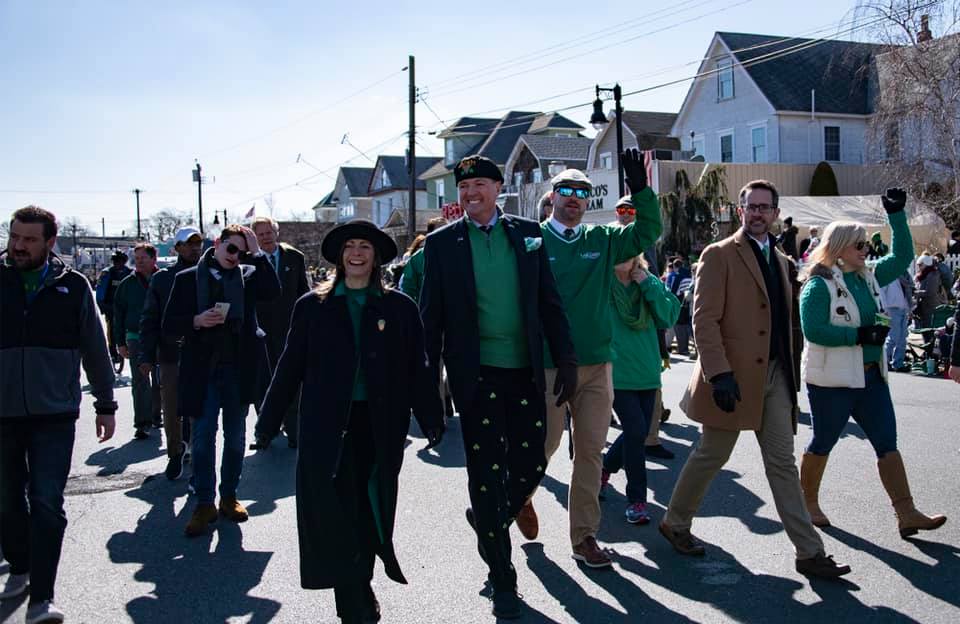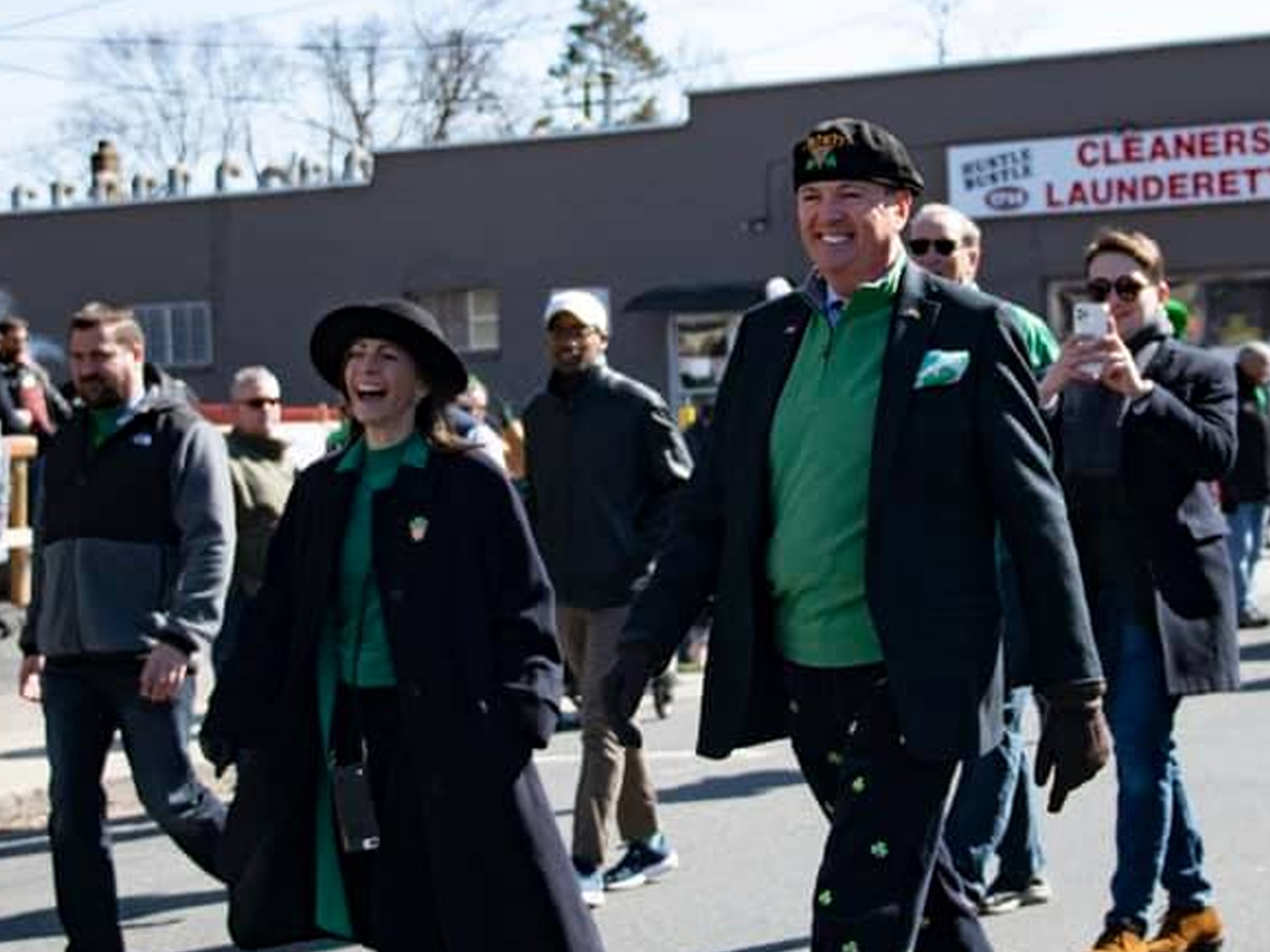TRENTON, NJ – While few in New Jersey are celebrating Governor Phil Murphy’s Irish heritage and his accomplishments to the Garden State, except for himself, there is a lot to be proud of today if you are an Irish New Jerseyan.
Happy St. Patrick’s Day, New Jersey! Today, the Garden State is awash in green as we celebrate Irish heritage with parades, music, and a hearty dose of shamrock spirit. From Jersey City’s bustling streets to the sandy shores of the “Irish Riviera” in Cape May County, St. Paddy’s Day is the perfect time to honor the enduring contributions of Irish Americans to New Jersey’s history. Let’s dive into their legacy, spotlighting real-life examples of individuals and communities who shaped our state.
A Legacy Forged in Hardship
Irish immigrants began arriving in New Jersey in significant numbers during the 19th century, many escaping the Great Famine (1845–1852). They settled in industrial hubs like Newark, Paterson, and Jersey City, taking on tough jobs that fueled the state’s growth. One striking example is the Irish laborers who dug the Morris Canal in the 1830s.
This 102-mile waterway, stretching from Phillipsburg to Jersey City, was a lifeline for coal and goods, and its construction relied heavily on the backbreaking work of Irish immigrants. Living in shantytowns along the route, they faced harsh conditions but left a lasting mark on New Jersey’s economy.
Another real-life figure is John Roach, an Irish immigrant who arrived in New Jersey in the 1830s. Starting as a laborer at the Howell Iron Works in Allaire Village, Roach rose to become a titan of American shipbuilding. By the 1870s, his Delaware River Iron Ship Building and Engine Works in Chester, Pennsylvania (just across the New Jersey border), was producing ironclad warships for the U.S. Navy, showcasing the upward mobility and ingenuity of Irish Americans.
Political Power and Community Leadership
The Irish didn’t just build infrastructure—they shaped New Jersey’s political landscape. Take Frank Hague, born in 1876 to Irish immigrant parents in Jersey City. Rising from humble beginnings, Hague became mayor in 1917 and ruled Hudson County’s Democratic machine for three decades. Known as a champion of the working class (and a controversial figure for his strong-arm tactics), he secured jobs and aid for Irish families while wielding influence that reached the White House. His story reflects how Irish Americans turned adversity into political clout.
In Newark, the Irish community’s strength shines through in events like the 1962 St. Patrick’s Day parade, where over 25,000 participants from more than 70 Irish-American organizations marched to honor Archbishop Thomas Boland. This massive turnout underscored their unity and cultural pride, a tradition that continues with today’s parades in towns like Belmar and Morristown.
Cultural and Social Impact
Irish Americans also enriched New Jersey’s cultural fabric. Ellen “Nellie” Cashman, though better known for her exploits in the American West, had ties to the state’s Irish diaspora. Born in Ireland in 1845, she emigrated during the famine and later became a philanthropist and entrepreneur, embodying the Irish spirit of resilience that inspired many in New Jersey’s tight-knit communities.
Closer to home, the “Irish Riviera”—a stretch of Jersey Shore towns like Spring Lake and Sea Girt—became a summer haven for Irish-American families from the early 20th century. Families like the Murphys of Newark flocked here, building a legacy of relaxation and revelry that endures. Today, places like The Dublin House in Red Bank, established in the 1920s, keep the Irish spirit alive with traditional music and hearty fare, connecting generations to their roots.
Modern-Day Contributions
The Irish influence persists in New Jersey’s leaders and innovators.
Then there’s Governor Phil Murphy, with Irish ancestry, who signed a 2022 resolution designating March as Irish-American Heritage Month, recognizing the 1.3 million New Jerseyans who claim Irish descent. His trade mission to Ireland that year further cemented economic ties, echoing the industrious spirit of earlier immigrants.

The governor has been wildly unpopular among many in the state despite winning his bid for re-election during the 2021 pandemic election cycles where mail-in ballots dominated the political landscape.
We hope it’s just a bump in the road for the Irish.
Meanwhile, cultural figures like Malachy McCourt, who narrated a documentary on Frank Hague, highlight the Irish knack for storytelling. Born in Brooklyn to Irish parents, McCourt’s work with the New Jersey Historical Commission keeps the state’s Irish history vibrant and accessible.
Celebrating Today
This St. Patrick’s Day, New Jerseyans can raise a glass at historic spots like McGovern’s Tavern in Newark (opened 1936) or join the festivities at the Historic Village at Allaire, where reenactments bring 1830s Irish life to life. From the canal diggers to political bosses like Hague, from shipbuilder John Roach to shore-going families, Irish Americans have woven a rich tapestry across our state. So, here’s to them—sláinte to New Jersey’s Irish heart!
OP-ED by Shore News Network

